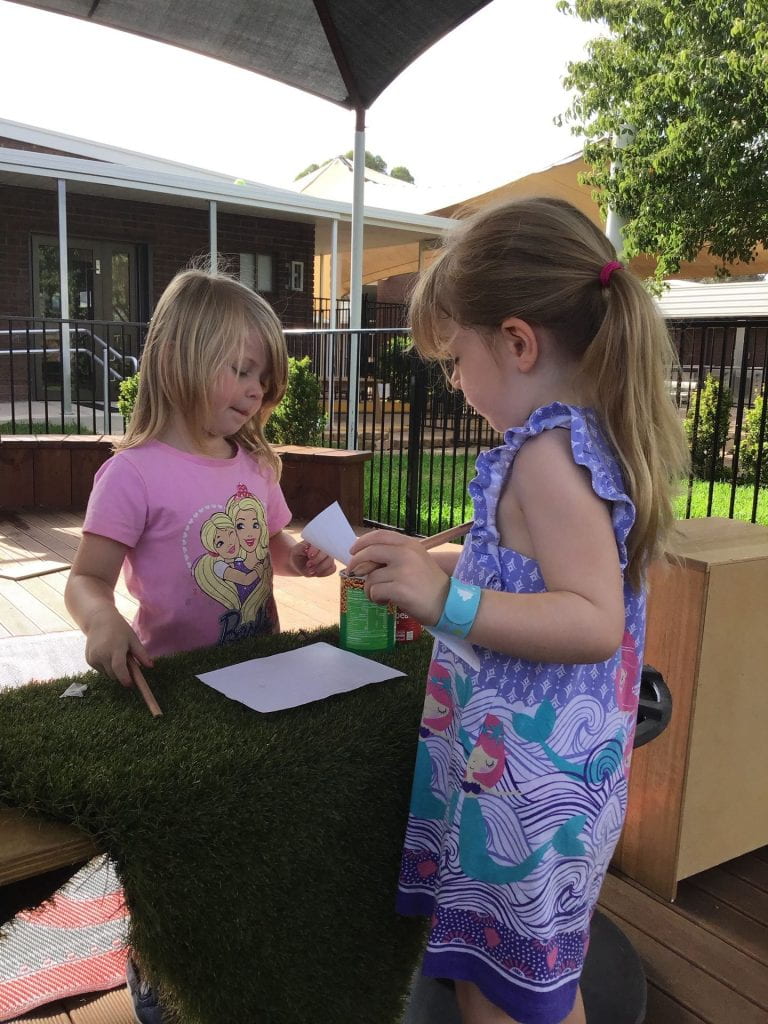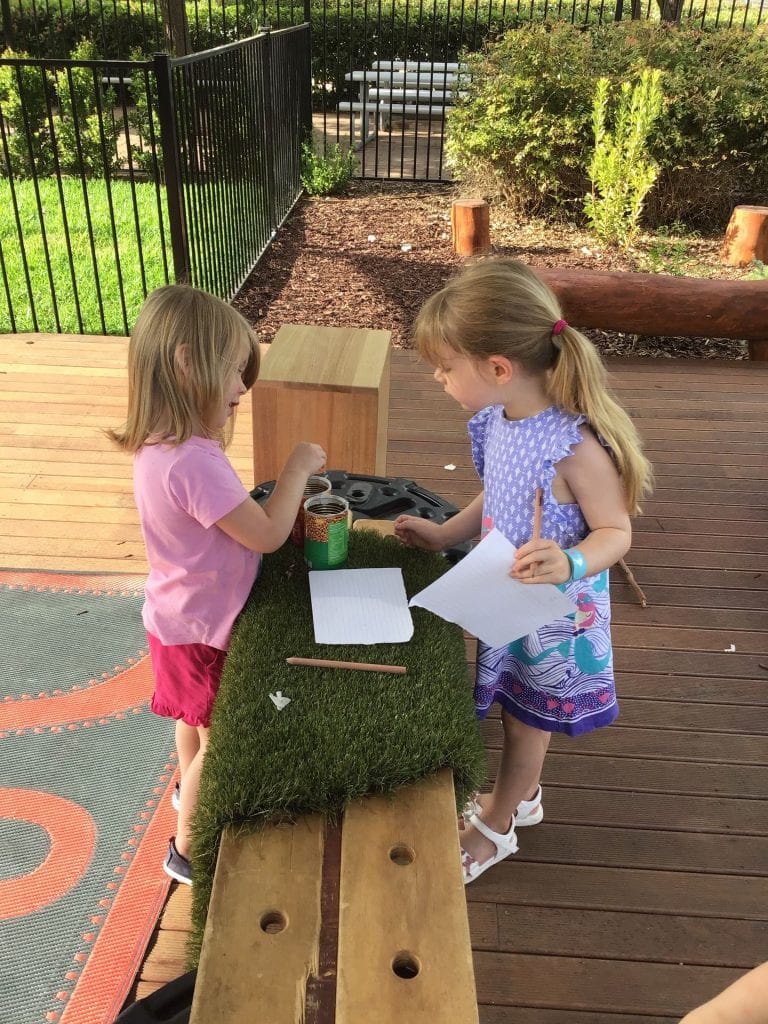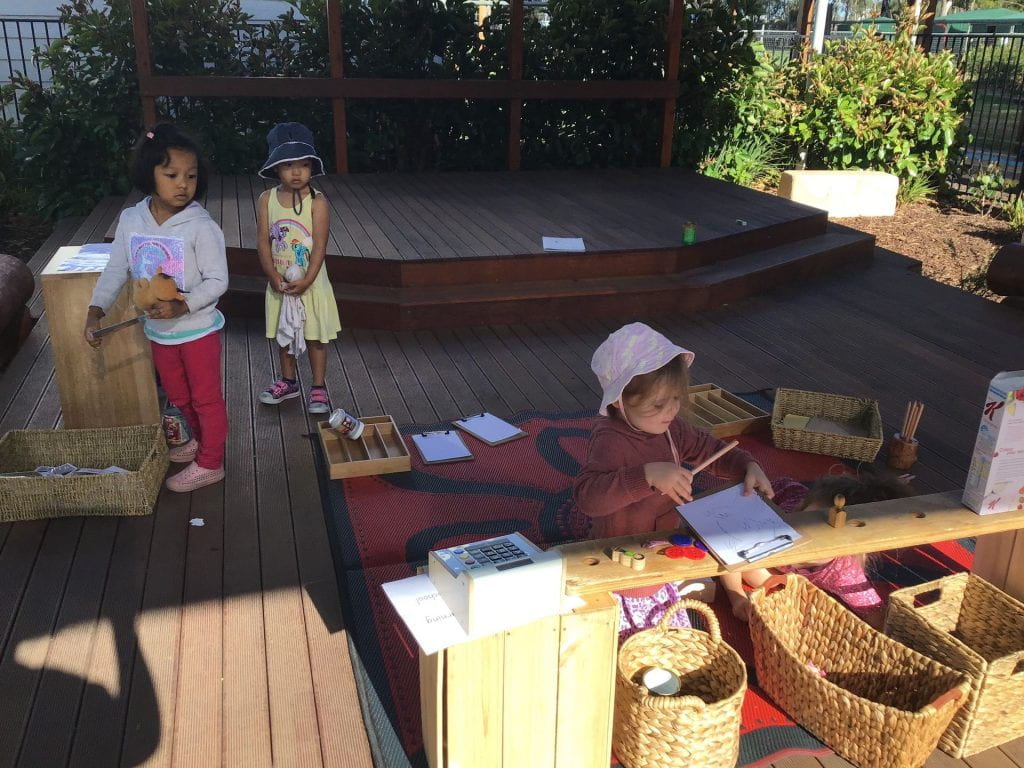Some of the children in St. Anne’s room have been observed engaging in a variety of shop role play. We noticed that outside Charlotte transported items to set up her own shop. At the playdough table Charlie, Lexi and Olivia made cupcakes and offered them for sale. Tesi stood at the door of the light room and called out to the main room, “Ice cream, ice cream for sale”. Ojasvi and Mischka climbed up a step so they were higher than the other children around them and called out, “Ice cream”, in unison. This play has not been limited to ice cream, it’s also been sandwiches and with Lorenzo: chocolate cake.
As the educators reflected on this play we decided to set up a role play shop for the children. We placed it outside as that was where the majority of the shop play was observed. However, we wonder whether the play is about shops, buying, selling and re-enacting their own experiences or whether it is a vehicle for something else, like connection.
Role play or pretend play is thought to be imaginative and fun but it also has much learning value. During role play children learn about themselves and the world, they may act out new learning, their fears, interests or dislikes. For example, how often in children’s dramatic hospital play do we see them giving each other vaccinations? Children are acting out an experience that they may not understand or find scary. They do this in a safe environment where they can explore their feelings and make sense of the world.
Shop role play has many opportunities for learning, such as; sorting food into groups with similar attributes, mathematically organising food in spatial arrangements, calculating the cost of food, communicating verbally and through writing, exploring shapes and weights, collaboration and so on.
The Early Years Learning Framework informs our curriculum. It states “Children develop a sense of belonging to groups and communities and an understanding of the reciprocal rights and responsibilities necessary for active community participation”. We wonder if this is what are children are trying to achieve by building on their own social experiences, negotiating roles and inviting reciprocal play?
These observations also link with our philosophy, “We will engage in projects, both internally and externally, that build on the learning of educators and foster new understandings of the ways in which children learn and grow in their early years.”
Here are some photos of our first observations of the children engaged in our role play shop. We will reflect on these and keep you informed as we attempt to interpret the learning. We would love to hear your thoughts.




